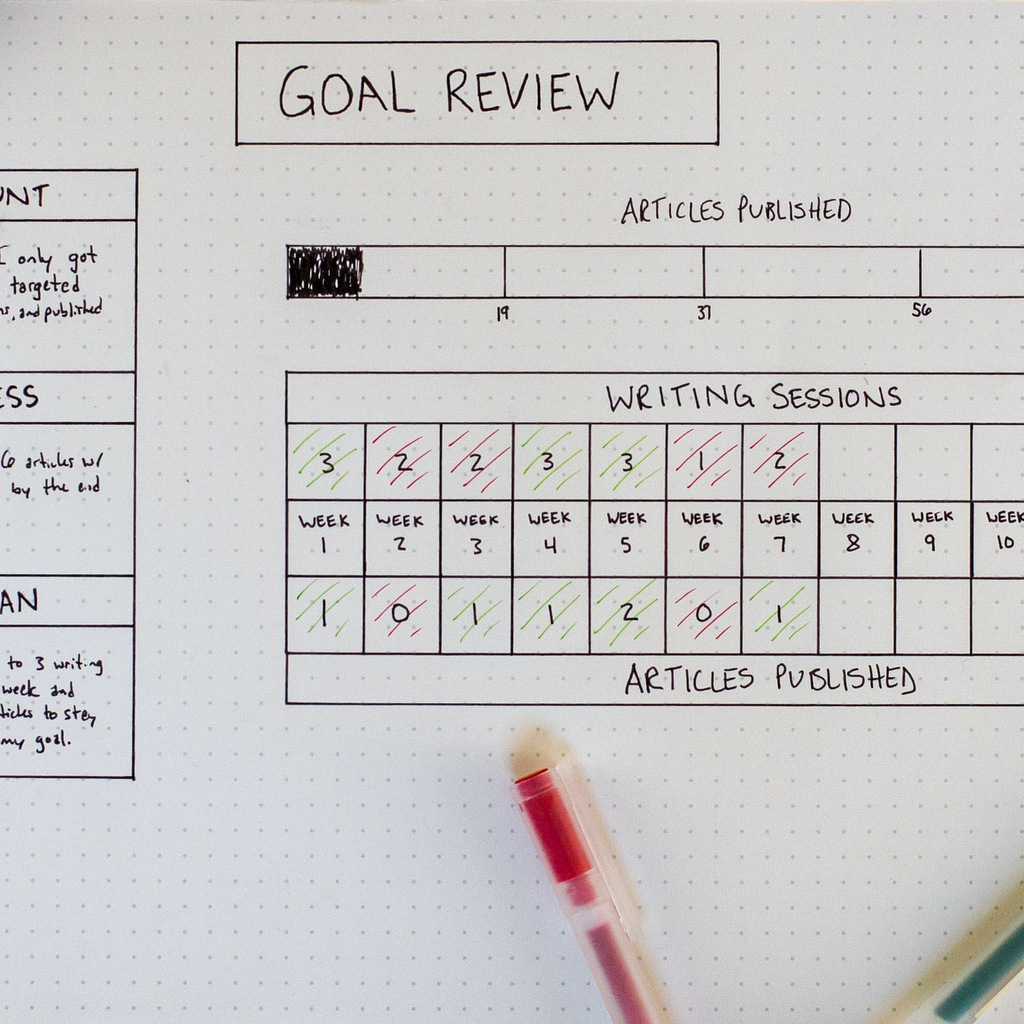How to Define Your Purpose and Goals in Interview Preparation
These interview FAQ resources address the most common questions that people may have when it comes to planning, preparing for, conducting, and analysing interviews for various purposes. These FAQs are applicable to a wide range of industries and situations, such as academic research, radio broadcasting, podcast or webinar hosting, journalism, job interviews, and many others. The information provided also delves into specific aspects of the interview process, including interview preparation for individual or group/focus group interviews, important considerations during interviews, effective questioning techniques, different interviewing styles, and the steps to review and interpret the outcomes after the interview has taken place.
What is the Purpose and Goal of My Interview?
Interviews, in their various forms, are integral tools for researchers, journalists, podcasters, human resource managers, and professionals across all industries. Whether you’re conducting a one-on-one discussion, a focus group conversation, or a podcast interview, understanding the purpose and setting clear goals is paramount to achieving meaningful outcomes.
At its core, an interview is a structured conversation between an interviewer and an interviewee, where questions are asked to elicit information, insights, and perspectives. These interactions serve multiple functions, including gathering data, sharing stories, disseminating knowledge, and making informed decisions. But what exactly is the purpose of your interview, and what goals do you hope to accomplish? Let’s delve into this multifaceted subject and explore the key facets of effective interview practices and interview preparation.
Exploring the Essence of Interviews
Understanding Interview Purpose
The very first step in conducting a successful interview is to grasp the interview’s purpose. The purpose varies greatly depending on the context. For example, a journalist’s purpose may be to inform the public about a recent event, while a researcher’s goal might be to collect data for a study. To ensure a successful interview, you need to clearly define your interview’s purpose.

The foundation of any successful interview lies in a deep understanding of its purpose. This is where you set the stage for what you hope to achieve through this interaction. The interview’s purpose can be as varied as the contexts in which interviews are conducted. For instance, if you’re a journalist, your purpose might be to inform the public about a recent event, providing them with balanced, accurate, and compelling information. On the other hand, if you’re a researcher, your goal might be to collect data that contributes to a scientific study. Defining your interview’s purpose clearly is not merely a formality; it’s the compass that will guide your entire conversation.
Your interview’s purpose should align with the overarching goals of your work. For a journalist, this could mean seeking to shed light on underreported issues or presenting a fresh perspective on a familiar topic. Researchers, on the other hand, may aim to unearth new insights or confirm existing theories. The more precisely you define your purpose, the more focused and successful your interview will be.
Example: If you’re a journalist covering a political event, your interview’s purpose may be to provide your audience with a balanced perspective on the event, including insights from various political figures and experts.
Setting Interview Goals
Once you’ve established the purpose, it’s crucial to set specific goals for your interview. What do you aim to achieve? Your goals might include gathering personal experiences, uncovering hidden insights, or presenting a well-rounded discussion. By defining your goals, you can better structure your interview to meet these objectives.
Once you’ve grasped the purpose, the next step is to set specific interview goals. These goals become the roadmap for your conversation. They help you articulate what you aim to achieve during the interview. Your goals can vary widely, depending on the nature of the interview and your objectives. They might include gathering personal experiences to provide a human angle to a news story, uncovering hidden insights that shed light on a complex issue, or conducting a well-rounded discussion that considers multiple perspectives. By delineating these goals, you can structure your interview to meet these specific objectives effectively.
Additional Thought: When setting your interview goals, think about the desired outcomes. For a journalist, this could involve enlightening the audience, prompting discussions, or even driving social change. Researchers may aim to advance knowledge in their field or offer practical solutions to real-world problems. Clarity in your goals ensures you stay on track throughout the interview.
Example: In a podcast interview with a best-selling author, your goals might be to gain a deeper understanding of the author’s writing process, share valuable writing tips with your audience, and promote the author’s latest book.
Interview Preparation For Success
Effective interview preparation is fundamental to achieving your goals. It involves researching your subject, developing well-thought-out questions, and considering the logistics of the interview. Interview preparation is the backbone of a successful interview.
Behind every successful interview is meticulous preparation. Interview preparation is the bedrock on which you build your entire interview. It encompasses a range of tasks, from researching your subject and developing a list of well-thought-out questions to considering the logistical aspects of the interview. A thorough understanding of your subject’s background and the context in which they operate is essential. Effective interview preparation sets the stage for a productive conversation, allowing you to delve deeper into the topics that matter most.
In terms of research, consider the importance of credible sources. For journalists, this means verifying facts and consulting multiple sources to ensure accuracy. Researchers must carefully select their study participants and establish clear criteria for their sample. Regardless of your field, the more you prepare, the more confidence you’ll have during the interview.
Example: If you’re an HR manager conducting a job interview, thorough interview preparation includes reviewing the candidate’s resume, formulating behavioural questions, and creating a comfortable and welcoming interview environment.
Selecting the Right Interviewee for the Subject
The choice of interviewee plays a significant role in determining the success of your interview. Different subjects require different types of interviewees. It’s essential to select individuals who can provide the insights and information you seek.
The choice of interviewee in your interview preparation is a critical decision that significantly impacts the success of your interview. Different subjects require different types of interviewees. It’s essential to select individuals who can provide the insights, experiences, or knowledge you seek. Your choice of interviewee should align with your goals and the purpose of the interview. They should be well-versed in the topic, whether they are experts, eyewitnesses, or individuals with personal experiences to share.
Consider the depth of expertise your interviewee possesses and how it complements your goals. A subject matter expert is invaluable when seeking in-depth insights, while someone who has lived through an event can offer a unique perspective. In some cases, a diverse panel of interviewees may be the most effective approach to gain a comprehensive understanding.
Example: If you are a podcast host discussing technology trends, consider inviting a renowned tech industry expert as your interviewee to provide in-depth knowledge and analysis.
Adapting Interview Styles to Your Goals
Interviews come in various styles: structured, semi-structured, unstructured, and more. Each style suits different interview purposes. Selecting the right style for your goals ensures that you can gather the information you need effectively.
Interviews are not one-size-fits-all; they come in various styles to suit different purposes. The style you choose in your interview preparation should align with your goals, the subject matter, and your audience. Structured interviews, for example, are well-suited for collecting specific, standardised information.

Semi-structured interviews allow for more in-depth exploration, while unstructured interviews are highly flexible and open-ended. Matching your interview style to your goals ensures you can gather the information you need effectively.
Your choice of interview style in your interview preparation can also be influenced by your audience’s preferences. Podcast listeners may appreciate a conversational, semi-structured approach, while researchers may lean toward structured interviews for precise data collection. Understanding your audience can guide your decision on the interview style to adopt.
Example: A structured interview may be ideal for HR professionals seeking standardised information from job applicants, while a semi-structured interview could be more appropriate for researchers looking for detailed narratives.
The Art of Asking the Right Questions
The quality of your questions can make or break your interview. Crafting open-ended, thought-provoking questions is essential for eliciting meaningful responses and insights.
The quality of the questions you pose can determine the success or failure of your interview. Crafting questions in your interview preparation that are open-ended, thought-provoking, and tailored to your subject matter is essential. Well-structured questions encourage interviewees to provide meaningful, insightful responses. They should invite your interviewee to share their thoughts, stories, and experiences in a way that enriches the conversation.
Consider the power of the follow-up question. These queries, based on the interviewee’s responses, can deepen the conversation, reveal hidden insights, and create a more engaging dialogue. They also demonstrate your active engagement with the interviewee, fostering a more productive interaction.
Example: A journalist interviewing a renowned chef might ask, “Can you share the story behind your signature dish and what inspired its creation?” This question encourages the interviewee to provide a rich, storytelling response.
Active Listening and Follow-up Questions
During the interview, active listening is paramount. It allows you to respond to your interviewee’s answers and pose relevant follow-up questions. This interaction enhances the depth and quality of the conversation.
Active listening is not merely a buzzword; it’s a pivotal element of effective interviewing. It entails not just hearing the words but also understanding the meaning behind them. Active listening allows you to respond to your interviewee’s answers with pertinent follow-up questions. This dynamic interaction enriches the depth and quality of the conversation, allowing you to explore topics more thoroughly and gain deeper insights.
Active listening is a two-way street. While you’re listening intently to your interviewee, they are likely picking up on your responsiveness. Your genuine interest and engagement can foster a more positive and productive interview experience for both parties.
Example: If you’re a journalist interviewing a disaster survivor, active listening can help you respond empathetically and ask follow-up questions that dig deeper into their experiences and emotions.
Maintaining a Comfortable Atmosphere
Creating a comfortable atmosphere is vital for productive interviews. A relaxed interviewee is more likely to open up and provide valuable insights. Show empathy and respect throughout the interview process.
As part of your interview preparation, create a comfortable atmosphere to facilitate a productive interview. When interviewees feel at ease, they are more likely to open up, share personal experiences, and provide valuable insights. Empathy and respect are key in cultivating this atmosphere. It’s not just about the words you use but also your body language and overall demeanour.
Consider the importance of non-verbal communication. Maintaining eye contact, using open body language, and displaying genuine empathy through facial expressions can go a long way in making your interviewee feel comfortable and valued. The interview space should also be free from distractions, ensuring a focused and conducive environment.
Example: In a focus group interview on mental health, the moderator’s warm and welcoming demeanour can help participants feel safe sharing their experiences and emotions.
Data Collection and Analysis
For researchers, interviews are a primary source of data. After conducting interviews, it’s important to organise, transcribe, and analyse the information to draw meaningful conclusions and insights.
Interviews often serve as a primary source of data. Once you’ve conducted interviews, the work isn’t complete. It’s crucial to organise, transcribe, and analyse the information you’ve gathered. Effective data management and analysis are as vital as interview preparation, to draw meaningful conclusions and insights from your interviews.

This step is where the raw data you’ve collected begins to take shape as valuable knowledge. Remember that data security and privacy are critical concerns. Ensure that you follow ethical guidelines and obtain informed consent from your interviewees when necessary. Additionally, consider the use of transcription services like Way With Words to accurately and professionally transcribe your interviews, which can save you time and ensure accurate data storage.
Example: Social scientists conducting qualitative research may interview individuals to understand cultural norms and behaviours. They must carefully analyse the collected data to identify patterns and trends.
Evaluating Interview Outcomes
After your interview, it’s crucial to assess whether your goals were met. Reflect on the interview’s strengths and weaknesses, and use this feedback to improve your future interviews.
Example: If you’re a podcast host, you might gauge the interview’s success by reviewing listener feedback and ratings. Did the interview resonate with your audience? Were the goals achieved?
Key Interview Preparation Tips
- Purpose and Goals: Always define your interview’s purpose and set clear goals to guide your approach.
- Interview Preparation is Key: Thoroughly prepare by researching, formulating questions, and ensuring logistical details are in place.
- Select the Right Interviewee: Choose interviewees who are best suited to provide the insights and information you seek.
- Adapt Your Style: Match your interview style to your goals for effective information gathering.
- Craft Thoughtful Questions: Create open-ended questions that encourage meaningful responses.
- Active Listening: Actively listen and respond to interviewee answers with follow-up questions.
- Comfortable Atmosphere: Create a welcoming and empathetic environment for your interviewees.
- Data Management: If conducting research, ensure you collect, transcribe, and analyse interview data effectively.
- Evaluation: Continuously assess the outcomes of your interviews to improve future efforts.
Shaping Effective Interviews
In conclusion, interviews are versatile tools used by researchers, journalists, podcasters, human resource managers, and professionals in various industries. Understanding the purpose and goals of your interview is paramount for success. By defining the purpose, setting clear goals, and following the key tips outlined above, you can conduct interviews that yield valuable insights and achieve your intended outcomes.
A key piece of advice to remember is that interviews are not one-size-fits-all. Tailor your approach in your interview preparation to suit your specific goals and audience. Continuously refine your interviewing skills and techniques to ensure you get the most out of your interactions.
By recognising the importance of interviews in our ever-evolving world and by mastering the art of conducting them effectively, you can connect, inform, and inspire your audience while contributing to the growth of your field.
Where to Learn More
Way With Words is a leading transcription service that offers professional interview transcription with high accuracy. Their services can assist you in managing and analysing your interview data effectively.
The Pew Research Centre’s Journalism Project provides valuable insights and research on journalism, including tips for conducting interviews and gathering data for journalistic purposes.
Harvard Business Review offers a wealth of resources on effective interviewing for HR professionals, including articles on preparing for job interviews and conducting structured interviews.
Reflecting on the Essence of Interviews
As you venture into the world of interviews, consider the following questions:
- How can you adapt your interview style to better achieve your goals?
- What techniques can you employ in your interview preparation to create a more comfortable atmosphere for your interviewees?
- What strategies do you use to assess the success of your interviews, and how do you implement improvements based on feedback?
